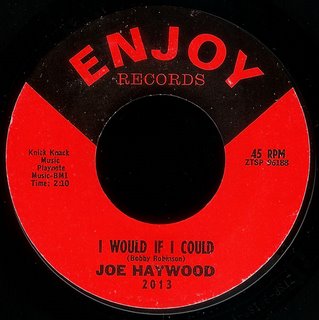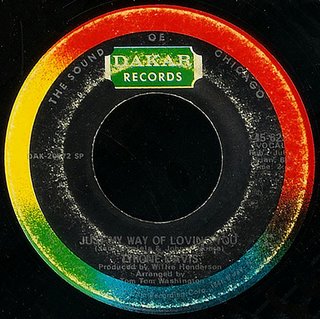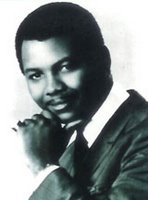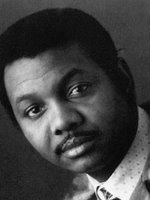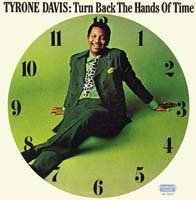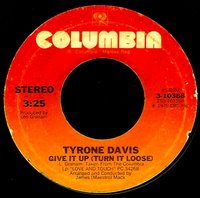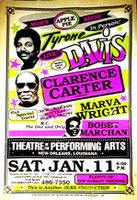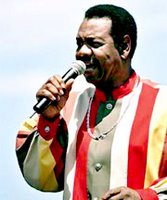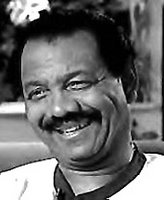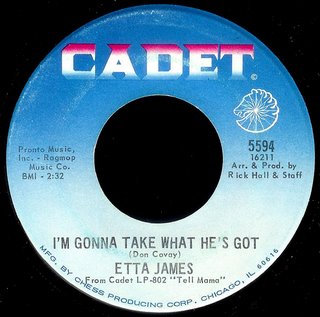 I'm Gonna Take What He's Got
I'm Gonna Take What He's GotJamesetta Hawkins was born in South Central Los Angeles in 1938. Her mother, Dorothy, was 14 years old. Her father, she maintains, was celebrated pool hustler
Minnesota Fats. Raised by family friends, her vocal abilities were soon noticed at their church, St. Paul Baptist.
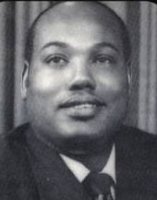 The Echoes of Eden Choir
The Echoes of Eden Choir at St. Paul's was the "biggest, baddest and hippest" in L.A., and the Church was a favorite with gospel greats such as
Sallie Martin and
Rosetta Tharpe, as well as with 'slumming' Hollywood types who filled the back pews. The choir director,
Professor James Earl Hines, knew talent when he saw it and took the young Jamesetta under his wing. He coached his young vocal student in what he called "dynamic singing", urging her to "never back off those notes... claim those suckers, sing 'em like you own 'em!" (advice she would clearly take to heart!). The choir was broadcast every Sunday on KOWL, and it wasn't long before the little girl soloist up front became famous in her own right.
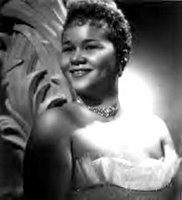
She went to school with people like
Jesse Belvin and
Richard Berry, and became a part of the crowd that hung out on Central Avenue. When her adoptive mother, Mama Lu, died in 1950, Dorothy Hawkins took her daughter to live in the projects of San Francisco. She made friends with a girl named Jean Mitchell, and began harmonizing with her and her sister, Abye at the rec center near their apartment. She eventually moved in with them, and they began calling themselves "The Creolettes".
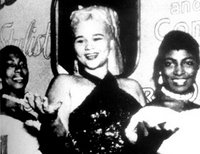
In the summer of 1954,
Hank Ballard and The Midnighters had a huge hit with
Work With Me Annie, a suggestive rocker that would hold the number one slot on the R&B charts for 7 weeks. Jamesetta re-wrote the lyrics and came up with an 'answer song' she called "Roll With Me Henry". The Creolettes performed the tune all over town, and people ate it up. Abye, who was older than the other girls, got herself introduced to west coast R&B legend
Johnny Otis, and talked him into letting her group audition for him. He was duly impressed, and offered to make them a part of his act. Jamesetta forged her mother's signature on a permission form, and headed back to L.A..

Otis renamed the group "The Peaches", and was also the one responsible for switching the syllables around and coming up with 'Etta James'. He landed the group a deal with the Bihari brothers'
Modern Records, and they released Roll With Me Henry in the fall of 1954. Radio stations were refusing to play it because of the suggestive title, and
King Records, who had released The Midnighter's original hit was threatening to sue Modern. They pulled the record, paid Sid Nathan off, and changed the name of the song to
The Wallflower, agreeing to credit Ballard as a co-writer down the line. The song, with old pal Richard Berry playing the part of Henry, went straight to number one, spending 19 weeks on the R&B charts. A follow-up single,
Good Rockin' Daddy (with Jessie Belvin on background vocals), would also crack the top ten. Etta James was in the house!
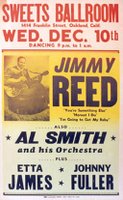
She began traveling the country in package tours like the Top Ten Revue, working with everyone from
Little Willie John to
Bill Doggett,
Bo Diddley,
Little Richard and even
Clifton Chenier. She forged lifelong friendships with folks like kindred souls
Johnny "Guitar" Watson and
Larry Williams, and truly 'went to school' on the R&B road ("Man, I saw some stuff", she says).
The Biharis sent Etta down to Cosimo's studio in New Orleans in 1956 and again in 1957 to try and capture some rock & roll magic. Although songs like
Tough Lover and
The Pick-Up featured Matassa's 'A' team of crack studio musicians like
Lee Allen and
Earl Palmer, they failed to make the charts.
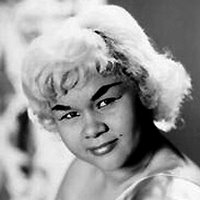
It was around this time that Etta fell in love with the suave and sophisticated
Harvey Fuqua who, along with his group
The Moonglows, seemed to own the top ten at the time. They told her that if she wanted to make some real money, she should get herself signed by their record company,
Chess. Broke and hungry, she and her old friend (and original 'Peach') Abye made their way to Chicago.
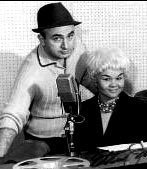
It took three thousand dollars to buy out her contract from Modern (her last Bihari single was actually released on their new label,
Kent), and
Leonard Chess, who was always on the look-out for female talent, advanced her another five grand. He assigned ace arranger
Riley Hampton to work with her on a song written by
Billy Davis and
Berry Gordy called
All I Could Do Was Cry. It was a huge hit, climbing to number 2 R&B, and paving the way for the lush orchestration of most of her early Argo sides.

She and Harvey would appear together on a couple of Chess releases (as
Etta and Harvey), and were also living together at The Sutherland Hotel, working on some old songs. Leonard was so impressed by what he heard that he had Hampton work up arrangements for an entire album of standards.
At Last was a huge success, and both the title track and
Trust In Me would crack the top five in early 1961.
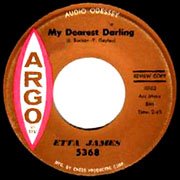
Etta continued to chart regularly, with great songs like
Something's Got A Hold On Me and
Stop The Wedding showing off her gospel shout. She also managed to become a full-fledged junkie by this time, and problems in her personal life began piling up. Leonard Chess was always there to catch her when she fell, it seemed, and although she found it hard to trust him completely, they basically needed each other.
Leonard was jealous of the success the "New York Jews" were having recording down South, and once
Jerry Wexler had his famous falling out with
Rick Hall down in Muscle Shoals, Chess was happy to step in. He signed an agreement with
Fame Studios that guaranteed them more money, and began by sending new label signees
Irma Thomas and
Laura Lee to record there. Lee's
Dirty Man broke into the top 20, and set the stage for what was to come.

In August of 1967, Etta James arrived in Florence, Alabama with her entourage, trunks of furs and fancy clothes, two french poodles, and Leonard Chess in tow. By her own admission, she was "pregnant and cranky and ready to blow the doors off the studio".
That's just what she did.

Over the course of a 3 day period, "Rick Hall & Staff" (which included
Gene "Bowlegs" Miller on trumpet,
Spooner Oldham on keyboards and
Jimmy Johnson on guitar) produced some of the most powerful soul music to ever rise out of Muscle Shoals. When
Tell Mama was released in November, it just ate up the charts, breaking into the top 10 R&B and top 40 pop. The B side of that single was a song Etta had written with old friend Ellington "Fuggie" Jordan while he was in prison. When Leonard Chess first heard her sing
I'd Rather Go Blind, he had to leave the room, so nobody would see him cry. It really is that good, man.
They returned to Fame Studios in December to finish recording tracks for the Tell Mama album, which was released in January 1968. Our current B side was the flip of Etta's cover of Otis Redding's
Security, and was released as the second single from the record in March, rising as high as #11 R&B. Written by the great
Don Covay (who, of course, would soon contribute his
Chain Of Fools to Aretha's southern soul legacy), it's the real thing, baby! Recorded at the original August sessions (the same day as I'd Rather Go Blind), it just cooks! Check out the Fender Rhodes, the guitar, Etta just beltin' it out! I'll take it. The original album has been re-packaged with 12 more tracks she recorded in Muscle Shoals on her first two visits, as well as on her last session in 1968.
Buy it.

When Leonard Chess died in January of 1969, Etta lost her friend and biggest fan. Within a few weeks. a faceless executive visited Etta with the deed to her house, which Leonard had held for her for years so she wouldn't lose it... she was amazed. Although she stayed with Chess (which was now owned by something called GRT corporation) until it all fell apart in the mid-70s, things were never the same.
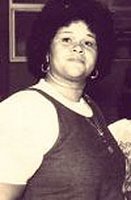
Jerry Wexler (who has called James "the greatest of all modern blues singers... the undisputed Earth Mother") produced an album on Etta for Warner Brothers in 1978 called
Deep In The Night, with both of them agreeing to steer clear of the "disco bullshit". Although it's a great record, it didn't sell much, and she moved on.

In 1980, she would team up with
Allen Toussaint in New Orleans to produce an album for MCA called
Changes that featured great Sea-Saint session men like
Leo Nocentelli,
Sam Henry and
Herman Ernest. Once again, it was a great record that didn't sell much, and remains out of print to this day!
Etta continued to perform throughout the eighties, although her recorded output didn't amount to much. MCA, which now owned the Chess masters, started re-issuing her material. Ace Records in the UK, which had the rights to the Modern and Kent catalogues began doing the same with her earlier output. My girlfriend (now my darling wife) became a HUGE fan, and we went to see the great "Miss Peaches" whenever we could. At a show at the Beacon Theater in NYC in 1989, she somehow worked her way backstage, and when she saw Etta she just broke down and cried. The great lady hugged her and said, "I know, honey, I know..." .

She signed with Island Records around this time and her albums were perrenial Grammy nominees. When she returned to Muscle Shoals with Jerry Wexler to record
The Right Time, the
Rock and Roll Hall of Fame finally took notice and she was inducted in 1993. She signed with
Private Music in 1994, and finally won her a (long overdue) Grammy for her first album for them,
Mystery Lady: Songs of Billie Holiday. She continued to turn out quality records for them for the next ten years.
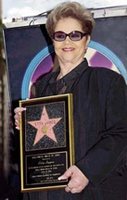
In 2003, Etta was awarded her own star on Hollywood's
Walk of Fame, as well as receiving a Liftetime Acheivement award at the Grammys. She was awarded another Grammy the following year for her
Blues To The Bone album. She had become serious about losing weight at this point, and underwent gastric bypass surgery.

This past March 14th, Etta released a critically acclaimed album on RCA Victor called
All The Way that has her covering everyone from Sinatra to Prince. She has lost over 200 pounds, and embarked on an ambitious tour in support of the record on April 8th. Reviews of her first shows have been excellent, and she's scheduled to perform everywhere from Jazz Fest in New Orleans to Carnegie Hall in Manhattan.

While doing research for this post, however, I found this (in the
Burlington, Vermont Free Press of April 13th); "...the only grim news at the otherwise ebullient news conference came when the Flynn's artistic director, Arnie Malina, announced that blues singer Etta James is too ill to make her scheduled festival-closing show June 11. The cancellation came within the past week..."
Whoa! I next tried to purchase tickets for her performance here on Long Island June 17th, but it has been removed from the "upcoming events" page on the site... I'm not sure what the nature of the illness is. There has been no official announcement as far as I can tell.
Say a prayer.
________________________________________
6/21/06
Well, folks, our prayers have been answered... I saw Etta last night at Carnegie Hall in NYC, and she was absolutely GREAT! Backed by the ultra-tight "Roots Band", which features her eldest son Donto on the drums, she just rocked da house!
Here's a link to her ambitious touring scedule this summer:
Etta James & The Roots BandGo see her while you still can.
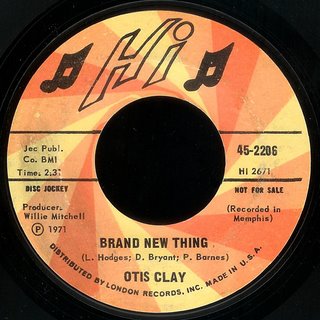
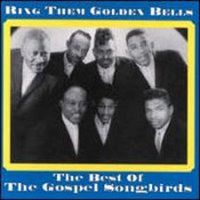 He also recorded a few "secular" sides for Carl Davis during his tenure at the Okeh label, but they were never released. He and Cash moved on to the Gospel Songbirds where they would record for Nashboro Gospel, the parent company of Excello. Arthur Crume invited Otis to join The Sensational Nightingales in late 1964, and he jumped at the chance. He toured extensively with them, finally living his dream of going on the road as a professional Gospel singer.
He also recorded a few "secular" sides for Carl Davis during his tenure at the Okeh label, but they were never released. He and Cash moved on to the Gospel Songbirds where they would record for Nashboro Gospel, the parent company of Excello. Arthur Crume invited Otis to join The Sensational Nightingales in late 1964, and he jumped at the chance. He toured extensively with them, finally living his dream of going on the road as a professional Gospel singer.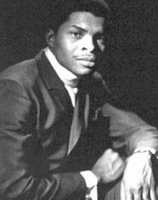 The road wasn't all it was cracked up to be, however, as Otis was kind of catching the tail end of the 'golden age' of quartet Gospel. Money was scarce, and a combination of shady promoters and changing times convinced him to try and 'cross-over' as so many had done before him.
The road wasn't all it was cracked up to be, however, as Otis was kind of catching the tail end of the 'golden age' of quartet Gospel. Money was scarce, and a combination of shady promoters and changing times convinced him to try and 'cross-over' as so many had done before him.  His first single for One-derful was a Burrage composition called Flame In Your Heart, and Harold helped take him to the next level. Otis has called him his "big brother in music", and credits him with "teaching him right". When Harold died of a sudden heart attack in November of 1966, Otis and the rest of the One-derful family were hit pretty hard. When That's How It Is (When You're In Love) broke into the top 40 on the R&B charts the following summer, Otis covered Burrage's Got to Find A Way on his next release as a tribute to his friend.
His first single for One-derful was a Burrage composition called Flame In Your Heart, and Harold helped take him to the next level. Otis has called him his "big brother in music", and credits him with "teaching him right". When Harold died of a sudden heart attack in November of 1966, Otis and the rest of the One-derful family were hit pretty hard. When That's How It Is (When You're In Love) broke into the top 40 on the R&B charts the following summer, Otis covered Burrage's Got to Find A Way on his next release as a tribute to his friend.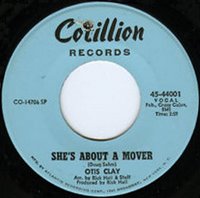 When One-derful went out of business in 1968, Atlantic Records picked up his contract, and sent him down to Muscle Shoals. His crankin' version of Doug Sahm's "She's About A Mover" became the first release on their Cotillion subsidiary and hit #47 R&B. Three more Cotillion singles were to follow including the crankin' "Hard Working Woman" (produced by old Chicago pal Syl Johnson), and "Is It Over", which was produced by good ol' Willie Mitchell. None of them charted, however, and Atlantic declined to renew his contract.
When One-derful went out of business in 1968, Atlantic Records picked up his contract, and sent him down to Muscle Shoals. His crankin' version of Doug Sahm's "She's About A Mover" became the first release on their Cotillion subsidiary and hit #47 R&B. Three more Cotillion singles were to follow including the crankin' "Hard Working Woman" (produced by old Chicago pal Syl Johnson), and "Is It Over", which was produced by good ol' Willie Mitchell. None of them charted, however, and Atlantic declined to renew his contract.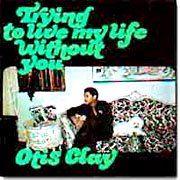 Later that year he would release his biggest hit, Trying To Live My Life Without You, which spent 10 weeks on the R&B charts, peaking at #24. Otis would chart again with the incredible If I Could Reach Out (written by George Jackson!) in 1973, and continued to record for Hi until Willie sold the company, releasing his last album for them, I Can't Take It, in 1977.
Later that year he would release his biggest hit, Trying To Live My Life Without You, which spent 10 weeks on the R&B charts, peaking at #24. Otis would chart again with the incredible If I Could Reach Out (written by George Jackson!) in 1973, and continued to record for Hi until Willie sold the company, releasing his last album for them, I Can't Take It, in 1977.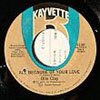 Later that year, "All Because Of Your Love" (recorded back in Muscle Shoals), would become his last chart entry (#44) and was released on the small Kayvette label, distributed by T.K. down in Miami.
Later that year, "All Because Of Your Love" (recorded back in Muscle Shoals), would become his last chart entry (#44) and was released on the small Kayvette label, distributed by T.K. down in Miami.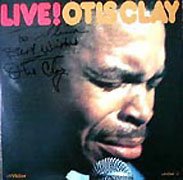 At this point, I think Otis read the handwriting on the wall, so to speak. Unwilling to 'go disco', and faced with the prospect of 'losing his audience', he went out and found another one. In 1978 he traveled to Japan, where a nationwide live broadcast of one of his performances gained him a million fans overnight. The concert was later released as a double live album, and the Japanese just couldn't get enough of him.
At this point, I think Otis read the handwriting on the wall, so to speak. Unwilling to 'go disco', and faced with the prospect of 'losing his audience', he went out and found another one. In 1978 he traveled to Japan, where a nationwide live broadcast of one of his performances gained him a million fans overnight. The concert was later released as a double live album, and the Japanese just couldn't get enough of him.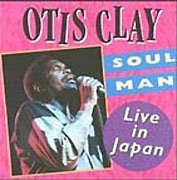 Another live album was released in 1983, only this time he had Hi Rhythm backing him up as well. They ate it up. Otis was "Big in Japan"! He still is...
Another live album was released in 1983, only this time he had Hi Rhythm backing him up as well. They ate it up. Otis was "Big in Japan"! He still is...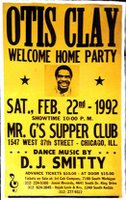 He also has become a much loved figure in his home town , and finds himself sort of an elder statesman of Chicago soul, gospel and rhythm & blues. In 1992, he released the great I'll Treat You Right, on Bullseye, and the following year he reached back to his spiritual roots for The Gospel Truth on Blind Pig. Bullseye also reunited Otis with Willie Mitchell in 1998 on the soulful This Time Around.
He also has become a much loved figure in his home town , and finds himself sort of an elder statesman of Chicago soul, gospel and rhythm & blues. In 1992, he released the great I'll Treat You Right, on Bullseye, and the following year he reached back to his spiritual roots for The Gospel Truth on Blind Pig. Bullseye also reunited Otis with Willie Mitchell in 1998 on the soulful This Time Around. 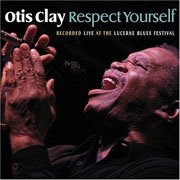 Just last year, Clay released another solid live album called Respect Yourself. Recorded at the Lucerne Blues Festival in Switzerland in 2003, Otis just brings down the house! As he's been quoted as saying, "Singing in a studio is like preaching in an empty Church." Tell it, brother!
Just last year, Clay released another solid live album called Respect Yourself. Recorded at the Lucerne Blues Festival in Switzerland in 2003, Otis just brings down the house! As he's been quoted as saying, "Singing in a studio is like preaching in an empty Church." Tell it, brother!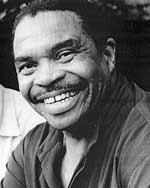 I know we've spoken of this before, but when Tyrone Davis suffered his debilitating stroke in late 2004, it was Otis, along with fellow deep soul ambassador Willie Clayton, who organized the star-studded benefit to help him with his medical bills. It was Otis who visited him in the hospital and gently sang to his friend...
I know we've spoken of this before, but when Tyrone Davis suffered his debilitating stroke in late 2004, it was Otis, along with fellow deep soul ambassador Willie Clayton, who organized the star-studded benefit to help him with his medical bills. It was Otis who visited him in the hospital and gently sang to his friend...



















